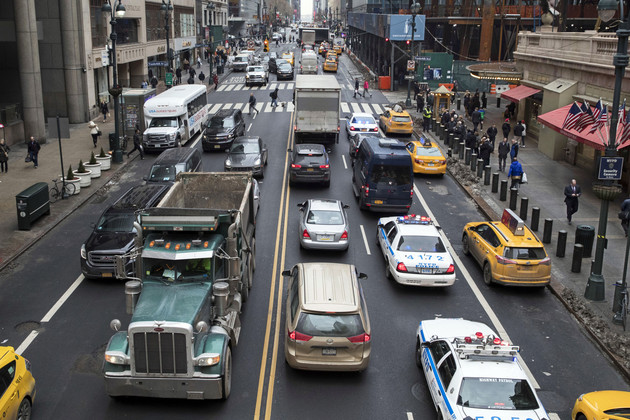Governor Kathy Hochul’s plan to increase taxes on New York City corporations was quickly shelved by state lawmakers. The plan aimed to recover funds that would have been generated by congestion pricing tolls.
Four sources told POLITICO on Thursday that the payroll mobility tax hike was almost certain to fail in the Democratic-led state Senate.
After a closed-door meeting of Democratic politicians, Kevin Thomas, a state senator from Long Island, stated, “It’s insane to do that right now.”
Develop and progress with IBM-sponsored enterprise AI. Give your company the tools it needs to develop ethical AI. Explore the toolbox for IBM Watsonx.Governance.
There is also limited time to reach an agreement: the state Legislature is set to end its session on Friday and won’t reconvene until January.
Legislators said Hochul’s latest proposal would be even more politically divisive than the congestion pricing plan she unexpectedly dropped earlier.
The future of capital investments for mass transit is now uncertain due to the rejection of a payroll tax hike intended to make up for lost revenue.
Following her withdrawal of support for the toll plan, which would have charged drivers $15 to enter Manhattan below 60th Street, Hochul proposed raising the tax, according to three individuals briefed on the idea who spoke on condition of anonymity.
Congestion pricing was expected to generate about $1 billion for the Metropolitan Transportation Authority’s $15 billion capital plan, funding infrastructure improvements. Lawmakers said the payroll tax increase would have brought in another $1 billion.
Hochul’s unexpected decision to withdraw from the congestion pricing proposal, aimed at supporting Democrats in competitive House races, jeopardizes hundreds of MTA service area enhancement projects.
Over the past two days, lawmakers have been scrambling to find alternatives to replace the toll revenue. One option included a payroll tax increase combined with several environmental laws.
Liz Krueger, chair of the Senate Finance Committee, criticized Hochul’s reversal, saying, “We had a funding stream for the MTA.”
Business leaders who previously supported congestion pricing criticized the proposed payroll tax hike.
The Partnership for New York City, typically an ally of Hochul, stated that “congestion pricing spread the MTA funding burden equitably across all constituencies benefiting from the mass transit system supporting the tri-state regional economy.” “New York City, already the most taxed city in the nation, bears the full burden of the payroll tax.” They urged the governor to implement congestion pricing.
Moreover, it’s unclear if any alternatives can generate revenue differently.
Delaying congestion pricing indefinitely, according to the New York City Independent Budget Office on Thursday, “halts decades of policy and implementation work representing unquantifiable amounts of time, money, and other resources.”
